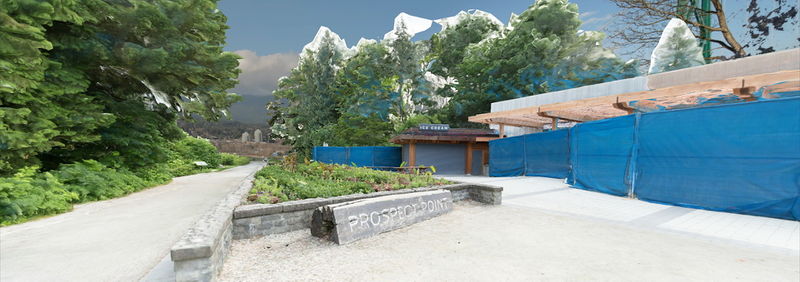Documentation:Stanley Park Virtual Field Trip
Stanley Park Virtual Field Trip
The Technology of Virtual Reality
This Geography VR project is utilizing cutting-edge innovative technologies. Virtual reality is an expanding platform that has grown ever since it’s first introduction, and is the key innovation that we will be utilized within this project. Photogrammetry and other technologies were also used, combining the best and newest innovations to make a impressive large scale project that will be the first of its kind.
The Project
The project focuses on Stanley park as virtual reality experience, with 3D spatial environment models, ground level photogrammetry, and the Unity game engine. Using a combination of cutting edge techniques and technologies, the Geography VR team is in the process of creating a fully interactive virtual space that allows students to learn about their surroundings from a different perspective. The project started from the Geography Department, with the goal of making experiential learning more accessible. Field trips are a vital part of learning about Geography, but what if you lack funding? What if a site is too dangerous for people to visit? What if a site is halfway around the world? By making it a virtual project, you give students the opportunity to access these sites from classrooms, or even from comfort of their own homes. Not only this, but you can allow students to interact with environments in more ways than in reality, giving them tools to play with time, space, and scale. Stanley Park was chosen, as it is the crown-jewel of urban parks in Canada. This project focuses on Prospect Point, a beautiful site within Prospect Point
Objective
The objective of this project is two-fold. The first is to create a complete immersive teaching and learning tool. The project will be polished and allow students, or anyone for that matter, to explore a photorealistic, intractable virtual environment of Prospect Point. The second is to release this project as an open source project, complete with best practices and a Wiki. It will be released under the Creative Commons Attribution-NonCommercial-ShareAlike license. This will make this project and all of it’s technology align with open pedagogy and sharing accessible education.
Phases
We are currently wrapping up Phase 2 of the project. Phase 1 of the project was to complete a very basic but functional version of the project. Photogrammetry and functionality still needed some work. Phase 2 is to complete and polish all tasks, including photogrammetry and functionality. This phase is going until the end of August.
Partners
Learn more about the project at BC Campus: https://bccampus.ca/2017/05/10/virtual-reality-and-augmented-reality-field-trips-funded-by-oer-grants/
Geography VR Wiki
https://sites.google.com/view/ubcgeovr/home
Photogrammetry Guide
A Guide To Capturing and Preparing Photogrammetry For Unity
The Team
The Geography VR project is an ongoing collaboration between the Faculty of Geography, UBC Emerging Media Lab, UBC Studios, Metanaut, and students from the AMS Game Development Association (AGDA).
Full list of people who participated is below:
Principal Investigators:
- Loch Brown, PhD, Department of Geography
- Arthur (Gill) Green, PhD, Department of Geography
- Derek Turner, PhD, Douglas College
Faculty:
- Jennifer Moss, Creative Writing
Staff:
- Chris Spencer, Video Producer
- Kirk Karasin, 360 Video Specialist
- Craig Carpenter, Sound Designer
- Matthew Hall, Drone Operator
Mentors:
- Peter Kao, CEO, Metanaut
- Andrew Lee, CTO, Metanaut
Students:
- Shavonne Yu, Main Artist (Sep 2016 to Aug 2017)
- Karen Qi, 3D Modeller (Jan to Apr 2017)
- Weijun Chu, 3D Modeller (Jan to Aug 2017)
- Theresa Kikuchi, Photogrammetry Modeller (Apr to Aug 2017)
- Asia Shmock, Project Coordinator (Jan to Aug 2017)
- Jeanie Suparman, Programmer (Sep 2016 to Apr 2017)
- Gowtham Mohan, Programmer (Sep 2016 to Apr 2017)
- Darren Fum, Programmer (Jan to Apr 2017)
- Janet Chen, Programmer (Jan to Apr 2017)
- Laurent Lousky, Programmer (Jan to Jun 2017)
- Luke Schuster, Programmer (Apr to Aug 2017)
- Sepand Dyanatkar, Programmer (Jun to Aug 2017)
- Ryan Dahoon Oh, Developer, 3D/Photogrammetry Modeller (Jan to Dec 2017)
Non-students:
- Jason Ngan, Programmer (Jan to Jun 2017)
- Travis Anderson, 3D Modeller (Aug 2017)
License
|
|

